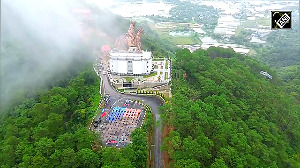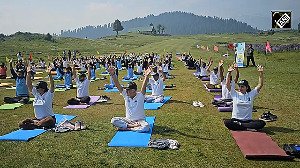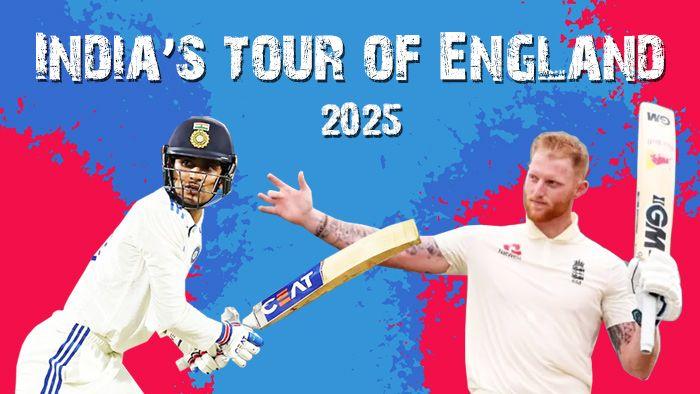The journey is less than seven kilometres.
Kensington Oval is scheduled to host the 2007 World Cup final, when around 20,000 cricket fans from across the globe will add to an already crippling load on the narrow, clogged and, in places, crumbling roads.
Plans are afoot to alleviate the potential crisis, with the building of elevated freeways the latest idea put forward.
The Kensington Oval is due to be knocked down in June after Pakistan's tour of West Indies, and is due to be rebuilt, World Cup organisers say, by the end of 2006.
The ground's capacity will be more than doubled to 28,000, and its facilities will be dramatically improved.
At least, that is the blueprint, though so far nothing has been demolished or constructed.
Despite the problems, many people are confident the Caribbean will be ready.
"I do fully believe that not only will the West Indies and Caribbean region be ready to host the next cricket World Cup, but I expect that the world would be shocked into understanding that we in the Caribbean are as special as they come when it comes to putting on a wonderful show," Colin Croft, the former West Indies fast bowler and now a respected commentator, wrote in the Trinidad and Tobago Express.
"I do have my reservations about our attitudes of accelerating at the last minute to get it all done, but despite the traumas that we have suffered, I also know that Caribbean people, individually and collectively, are tremendously resilient people.
"I know that we will be ready, spectacularly so."
LESS CONVINCED
Others, however, are less convinced.
"They'd better get a move on," a taxi driver said as he nudged his cab through the morning traffic during last month's third test between West Indies and South Africa at Kensington Oval.
"We
"But it's all talk -- nothing ever seems to happen, and the time is getting short."
Cricket fans hoping to find answers to their questions by going to www.worldcupbarbados.com, the website published on official World Cup promotional material, are informed that they have reached the future home of a travel industry site.
When former West Indies captain Brian Lara, perhaps the most recognised person in the Caribbean, travels from his home in Trinidad to Guyana, he is required to present his passport to an immigration official.
He has to pay departure tax and if he needs to change Trinidad dollars for the Guyanese variety.
That is because Guyana, which is just an hour's flight from Trinidad, is a sovereign state, as are Barbados, Antigua, Jamaica and the other seven countries where World Cup matches are scheduled to be played.
Plans to institute travel documents that will ease movement through the region are on the cards, but they remain just plans. The same goes for an as yet unseen universal Caribbean currency.
For all his enthusiasm, Croft also asked more complex questions.
"While the Caribbean and its people are passionate for the sport of cricket, will the sustainable benefits of the World Cup slip by them, especially after the tremendous investments that would have been used to bring off a successful World Cup?," he wrote.
"Will the region be stumped by the aftermath of the Cup? Cricket World Cup will bring a surge of tourism dollars and development to the Caribbean, but will it also bring great social and economic costs?"
The 2007 World Cup is expected to pump approximately $300 million into the Caribbean economy but the region may have to pay an even higher price for the privilege of hosting the showpiece tournament.








